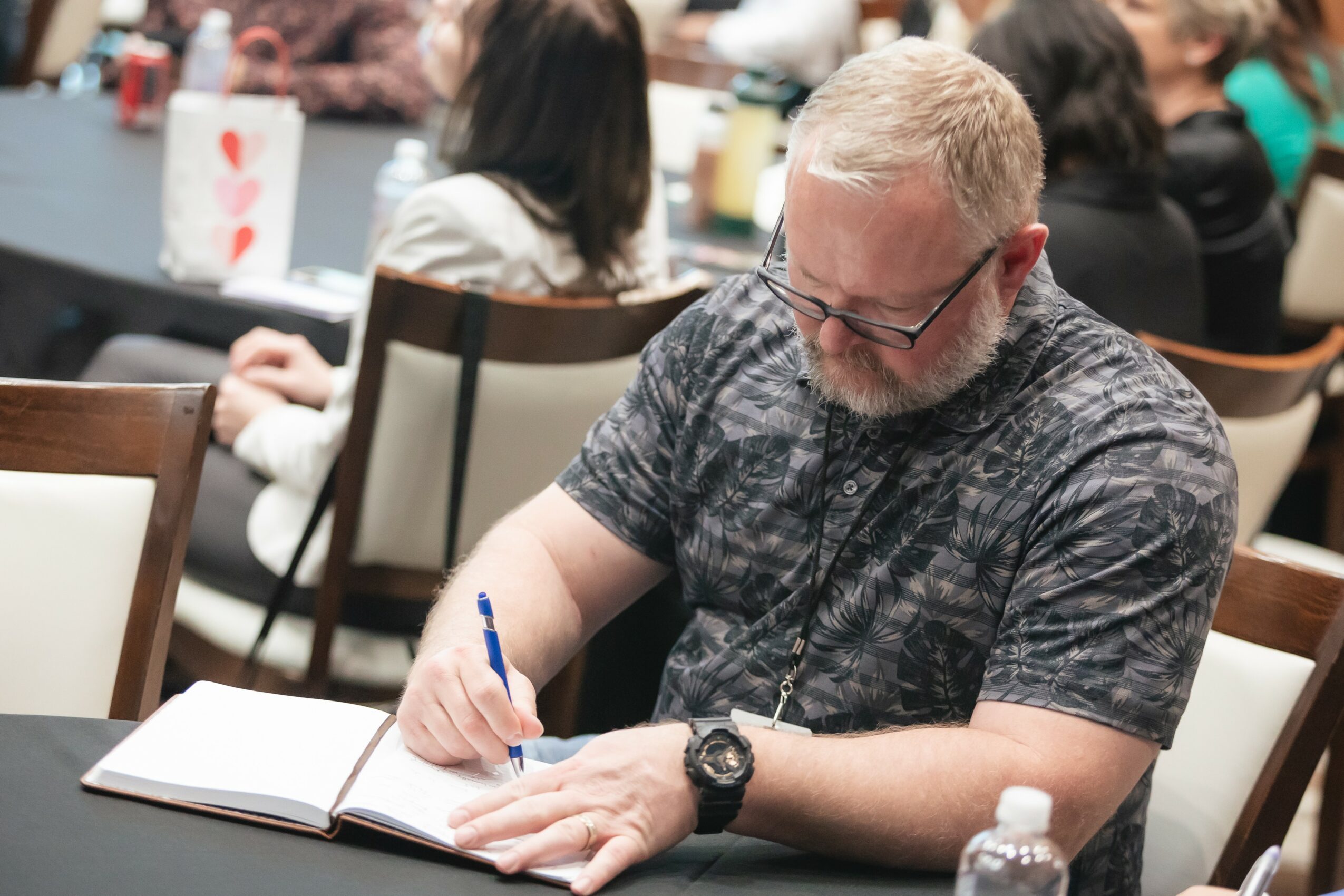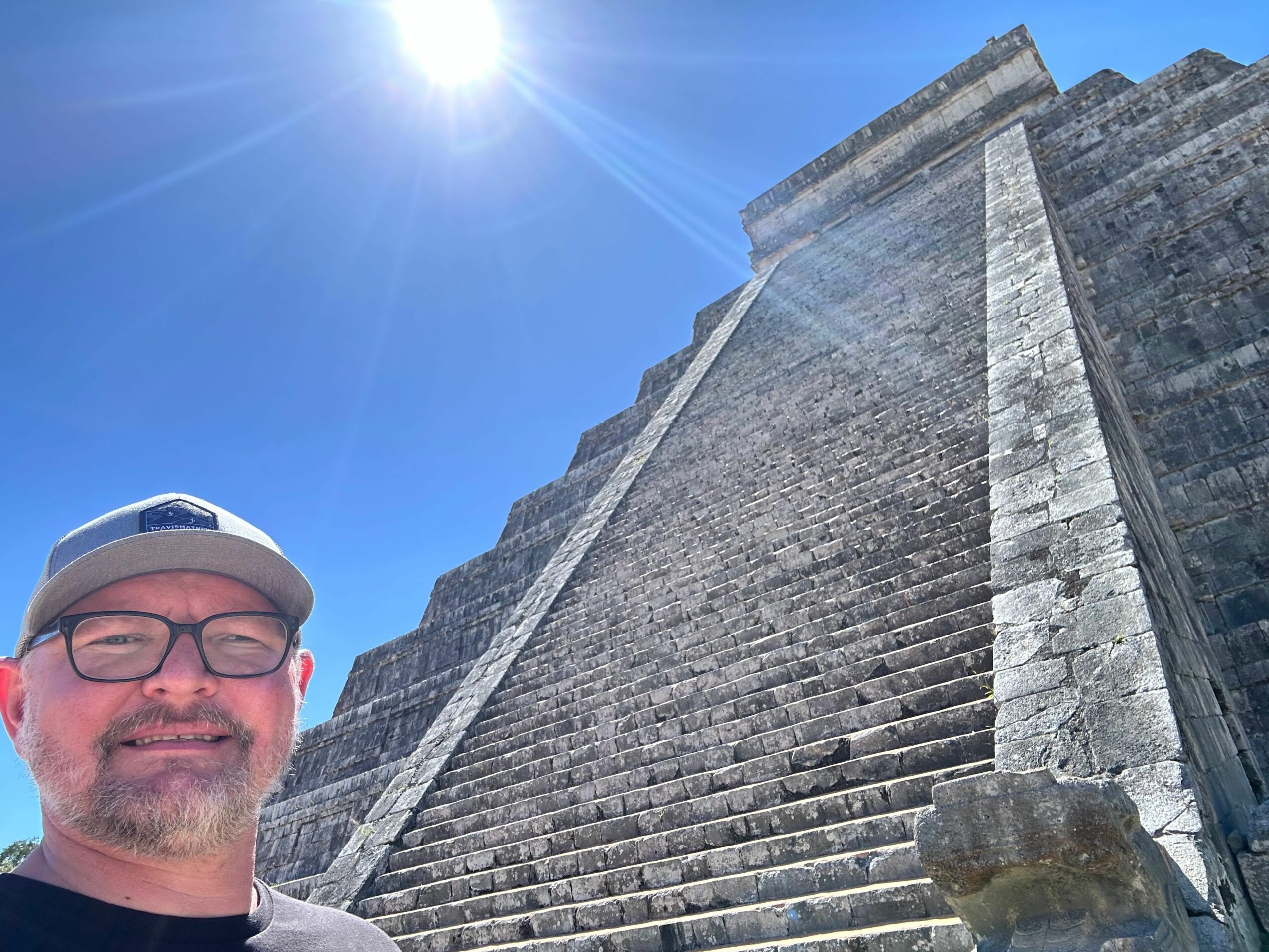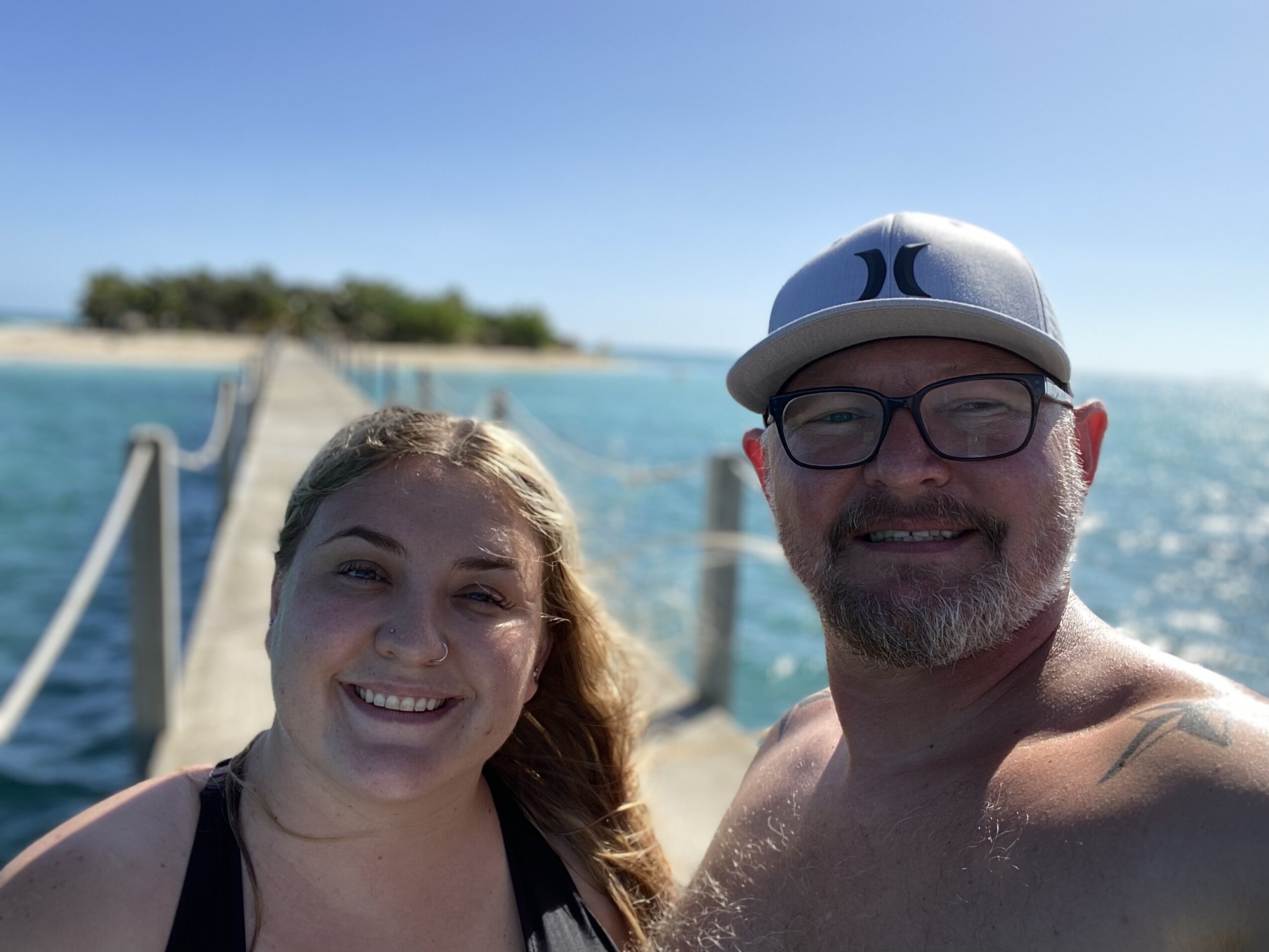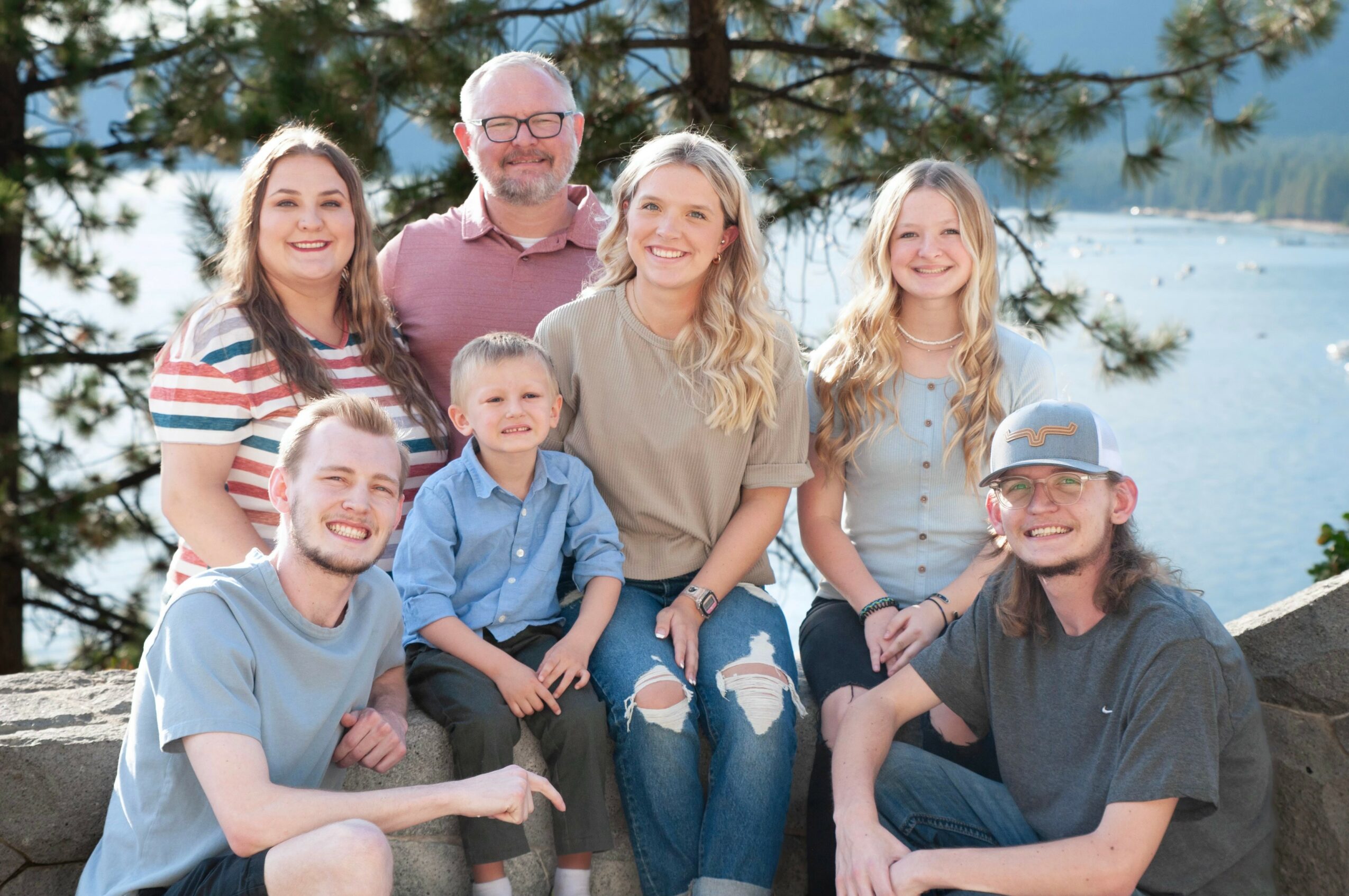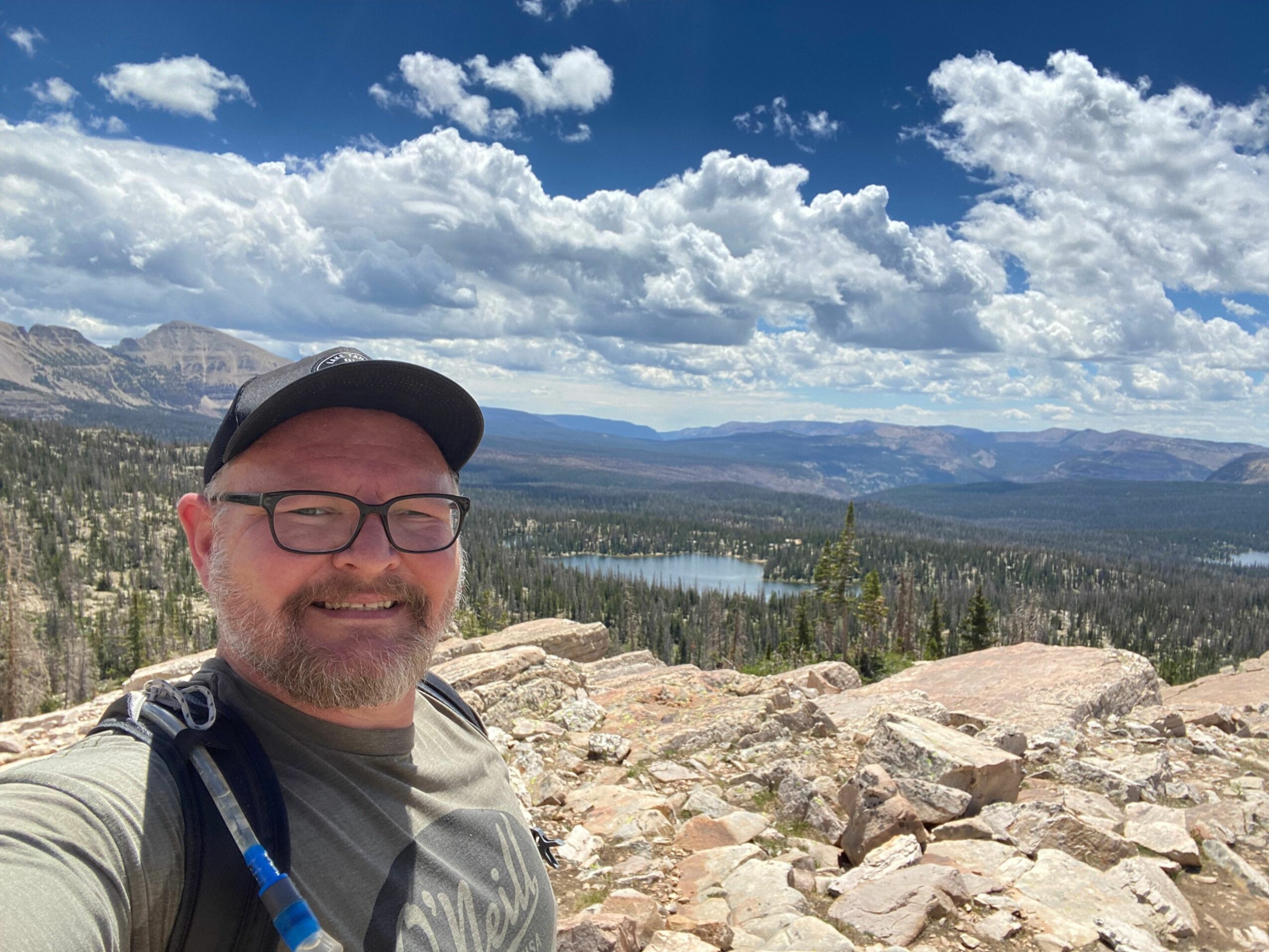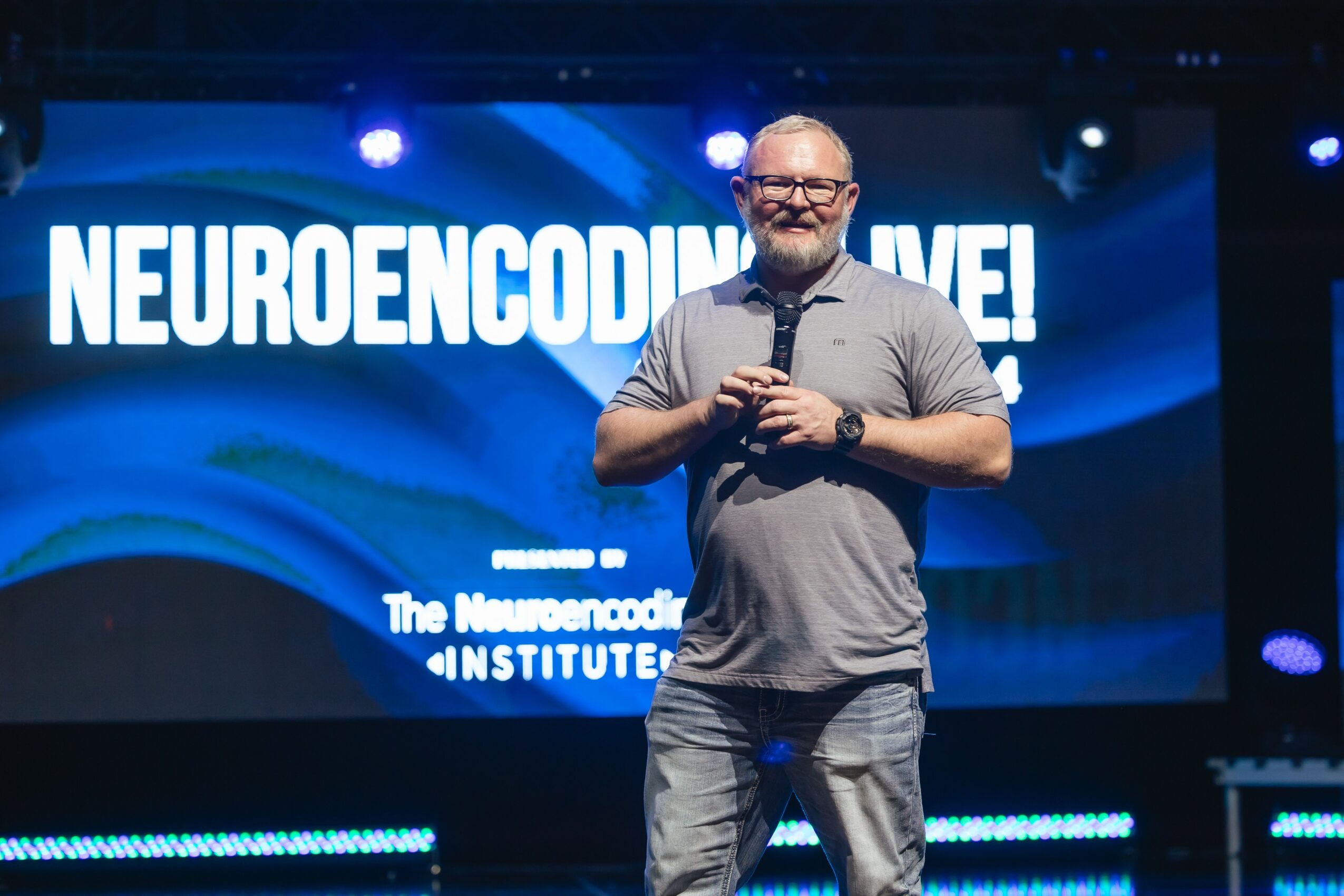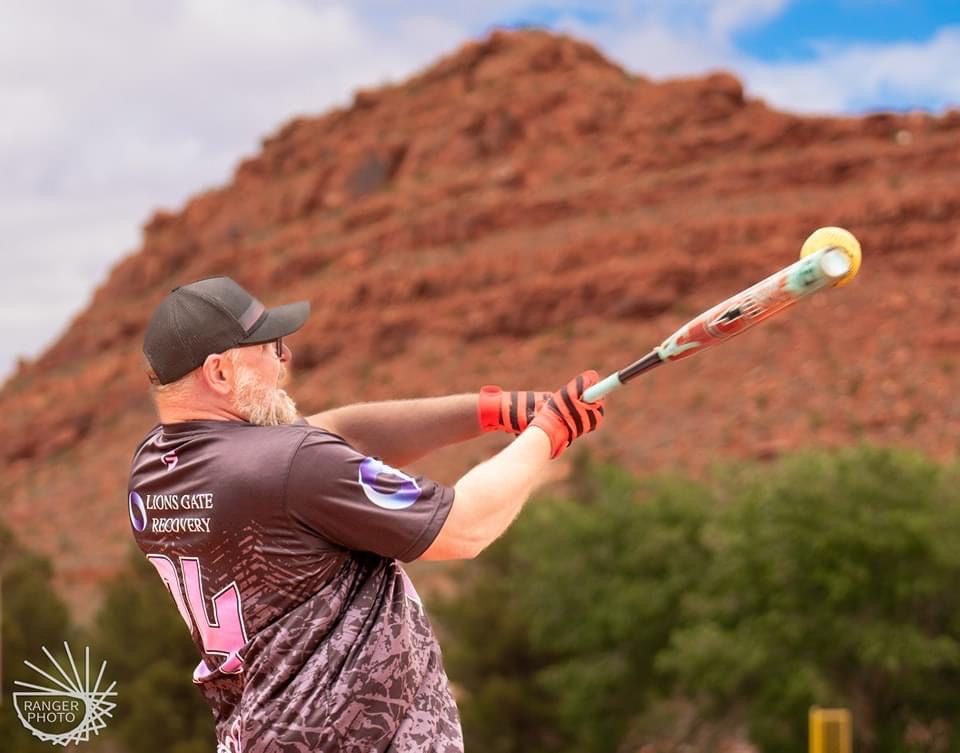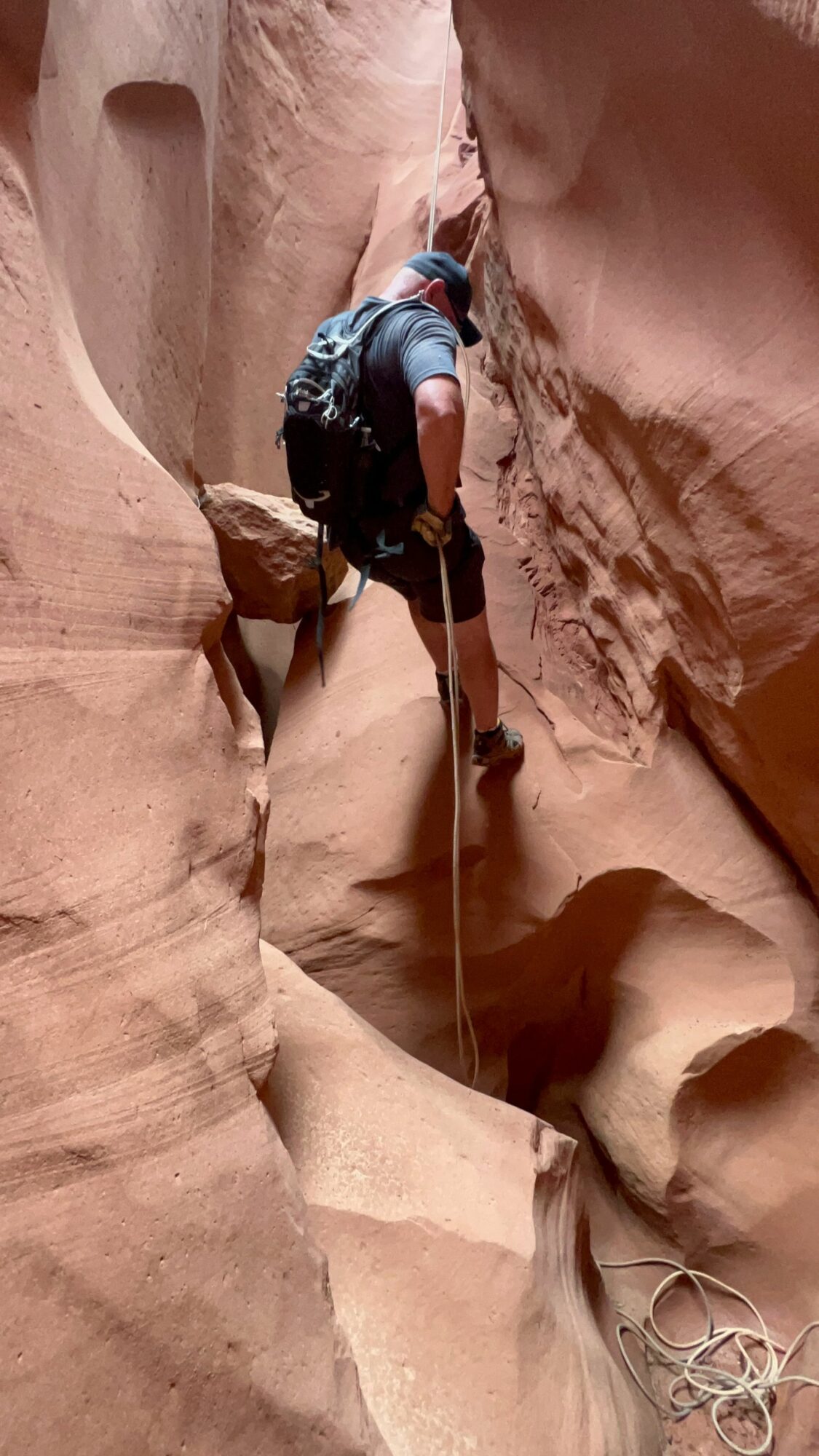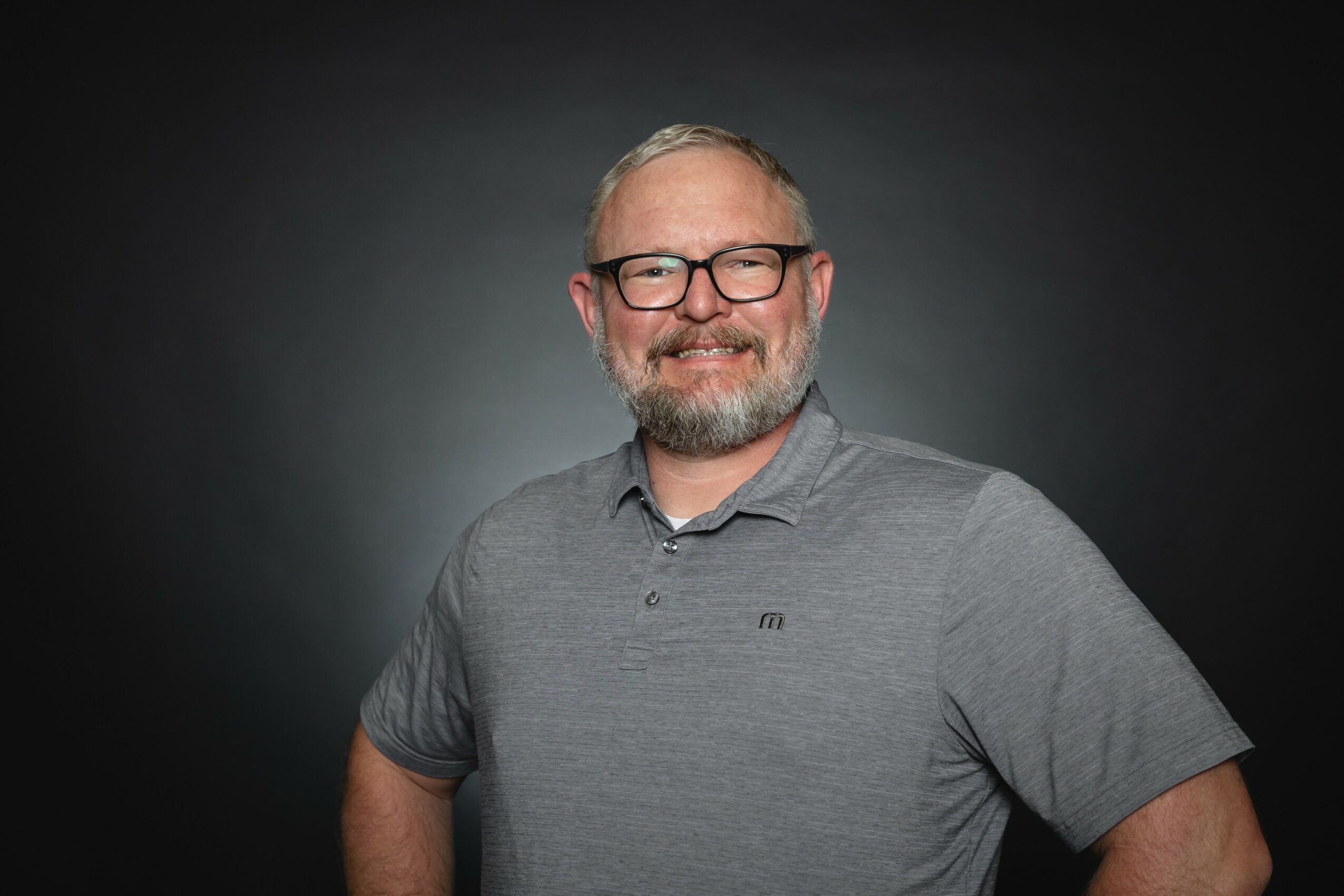

Today we’d like to introduce you to Cody Martensen
Hi Cody, it’s an honor to have you on the platform. Thanks for taking the time to share your story with us – to start maybe you can share some of your backstory with our readers?
I grew up here in Utah and ever since I was a kid I felt different and like I didn’t belong. As I went through childhood I had adapted these beliefs such as, “I am not important, I am broken, and I am unlovable”. As I went through life I did not have too many successful friendships or romantic relationships. I struggled being dependable and really advancing in life which would back up those beliefs that I learned from my childhood. Starting at the age of 13 years old I struggled with substance abuse addiction and for the next 21 years I would create destruction and choas in my path. I became homeless, stole things and had things stolen from me, sometimes I didn’t eat for days and didn’t know where my next meal was coming from. I found that I was not very successful at anything, I was behind in child support, and I was burying myself in debt. I was on the brink of going to prison for a long time and losing his children for good. I started thinking that my life was always going to be like this, that I was always going to use substances, that I was never going to bring home a big paycheck to take care of my family, that I was always going to have crazy toxic relationships, I felt hopeless. I felt like I couldn’t get out of the hole I had dug for myself. I truly felt that this world would be better off without me so much so that I had several suicide attempts and came close to dying numerous times.
One day after visiting with my kids I had the epiphany that my children were reflecting my behaviors in the way they were treating others and I thought to myself, “I better get to work and learn a new way to live because I am teaching my kids to be exactly like me”. I didn’t want my kids to go through the pain, years of misery and suffering that I went through. I realized life wasn’t going to make space for me to heal, I had to make the space for myself to heal. That nobody was coming to save me that I was the only one that had to do the work.
I set on this path of self discovery over 8 years ago and oh man what a crazy journey it has been. I had got custody of my 2 oldest boys in the first year of my recovery. 3 years later I got custody of my 2 daughters. I remember being a single dad to 4 kids and not having a clue how I was going to take care of them and teach them a new way. Due to my poor life choices I had to pay off some debt and make some things right, money was tight. I worked 2-3 and sometimes 4 jobs here and there to pay what I could and make progress. I took several self-improvement classes, parenting classes, and financial and budgeting classes to help me learn new skills so I could use them to turn my life around. I had to find out how to juggle taking care of my children, going to classes, working several jobs, find time to grocery shop, pay car payments and car insurance, and show up for my kids on a daily basis. Guess what I am still learning how to do this. I have married the women of my dreams and she and I have open a therapy and coaching business I also have the life of my dreams.
I decided I needed a purpose or I was going to fall back into my old ways and patterns. My purpose is to help people like me. I get to live my purpose everyday and I can’t believe I get paid to do it. I see people who are where I have been and no one talks about how overwhelming and daunting it is to face the wreckage when you decide to turn your life around. It took time and hard work and I had many set backs, there were times I wanted to give up. When we are working with people who have been where I have been there is one thing we need to remember. They are comfortable in the chaos, they are comfortable with the toxic relationships, stealing, fighting, and everything else that comes with that. This makes it difficult when something healthy or helpful comes along to want to do it because it is foreign they do not know what healthy support from healthy people looks like. It takes time, guidance, and reassurance over and over again. It takes claiming a new identity, restructuring your values and beliefs over and over again. What I have realized is there is an army of people willing to help you just have to be willing to open your mouth and take some action.
Since then I have served on countless recovery committees. I am currently on the board of directors for a non-profit called Addicts Fighting Back, we provide a community for people that are coming into recovery. Since people new to recovery have to change everything we provide friendships, support groups, recreational activities and a community people can lean on when they are struggling.
I am the Coordinator for Circles Utah/Wasatch Valley. We are a non-profit under the the umbrella of Community Action Services and Food Bank out of Provo Utah. Are mane purpose is to help people transform their finances, set goals to be financial independent and escape poverty. What I have experienced is people gain self worth, better self esteem, remove barriers and join together with a community of people that are doing the same.
I am a Manager at a treatment center called Building Beginnings. We provide sober living and IOP for males that are coming out of prison and individuals struggling with substance abuse.. We address behavior and thinking patterns daily. We assist individuals to break the patterns of substance abuse and going in and out of prison.
I am a Dual Elite Nueroendcoding Specialist. I am Transformational Life Coach who helps those live in recovery. What I have found is the steps to assist people to live a fulfilling life free from substances also has huge positive effect for those not in recovery and want to take their lives to the next level. I assist Business Professional’s that are coming out of addiction and need to rebuild their identity, deal with stigma and shame, and need to gain social support. I help them develop coping strategies, foster self-discovery and growth, and connect clients to resources. Since coaching the past 7 years I have developed a unique approach that combines empathy, empowerment, and practical strategies to help my clients overcome obstacles, set meaningful goals, and create lasting change.
We all face challenges, but looking back would you describe it as a relatively smooth road?
Emotional and Psychological Challenges-
Feelings of not belonging: A lifelong sense of being “different” and not fitting in.
Negative self-beliefs: Internalized beliefs of being unimportant, broken, and unlovable, likely rooted in childhood experiences.
Hopelessness: Struggling with the idea that life could never improve, leading to suicidal thoughts and attempts.
Addiction and Substance Abuse-
Early onset of addiction: Beginning substance abuse at age 13, which led to 21 years of destruction and chaos.
Self-destructive behavior: Homelessness, theft, and interactions with the criminal justice system.
Physical toll: Health and basic needs like food and shelter were often unmet.
Financial Challenges-
Crippling debt: Accumulated financial burdens, including unpaid child support.
Economic instability: Working multiple jobs to provide for a family and pay off debt.
Relationships and Family Struggles-
Toxic relationships: Difficulty forming healthy personal and romantic connections.
Parenting challenges: Initially losing custody of children, followed by struggling as a single parent to raise four kids while rebuilding life.
Legal Challenges-
Risk of imprisonment: Being on the brink of a long prison sentence.
Custody battles: Fighting to regain custody of his children while managing his own recovery.
Social and Systemic Barriers-
Isolation: Lack of a healthy support system early in life.
Stigma and judgment: Facing societal stigma due to addiction, homelessness, and criminal activity.
Overcoming Personal and Systemic Patterns-
Comfort in chaos: Having grown accustomed to toxic and destructive environments, making healthy change feel foreign and overwhelming.
Restructuring identity: The need to completely transform his values, beliefs, and self-concept.
Physical and Emotional Overload-
Overwork: Juggling parenting, multiple jobs, recovery, and self-improvement simultaneously.
Burnout: Facing setbacks and the temptation to give up due to the enormity of the task.
Leadership and Community Advocacy Challenges-
Learning curve: Developing skills as a leader, coach, and advocate while helping others transform their lives.
Balancing responsibilities: Navigating multiple roles (coordinator, manager, coach) and maintaining personal well-being.
Long-Term Transformation Obstacles-
Building trust with others in recovery: Helping people transition from chaos to stability, which requires time, patience, and persistence.
Creating sustainable change-Teaching clients to restructure their values, beliefs, and identity repeatedly over time.
This story highlights profound resilience and the power of transformation. While the individual faced immense struggles, they have channeled their pain into purpose, becoming a mentor, leader, and advocate for those facing similar obstacles.
Thanks for sharing that. So, maybe next you can tell us a bit more about your business?
I am the Coordinator for Circles Utah/Wasatch Valley. We are a non-profit under the the umbrella of Community Action Services and Food Bank out of Provo Utah. Are mane purpose is to help people transform their finances, set goals to be financial independent and escape poverty. What I have experienced is people gain self worth, better self esteem, remove barriers and join together with a community of people that are doing the same.
I am a Manager at a treatment center called Building Beginnings. We provide sober living and IOP for males that are coming out of prison and individuals struggling with substance abuse.. We address behavior and thinking patterns daily. We assist individuals to break the patterns of substance abuse and going in and out of prison.
I am a Dual Elite Nueroendcoding Specialist. I am Transformational Life Coach who helps those live in recovery. What I have found is the steps to assist people to live a fulfilling life free from substances also has huge positive effect for those not in recovery and want to take their lives to the next level. I assist Business Professional’s that are coming out of addiction and need to rebuild their identity, deal with stigma and shame, and need to gain social support. I help them develop coping strategies, foster self-discovery and growth, and connect clients to resources. Since coaching the past 7 years I have developed a unique approach that combines empathy, empowerment, and practical strategies to help my clients overcome obstacles, set meaningful goals, and create lasting change.
My coaching style is personalized and client-centered, focusing on building strong rapport with each client to understand their unique challenges and aspirations. Whether you’re looking to improve your relationships, advance your career, or enhance your overall wellbeing, I will provide you with the tools and support needed to achieve your goals and live a fulfilling life. My passion is helping people that are in addiction and are coming into recovery.
Coming out of addiction is a complex and challenging process, and individuals often face several pain points as they navigate recovery. Here are 10 common pain points and I help clients find their pain points in their life
Physical Withdrawal Symptoms
Many individuals experience intense physical withdrawal symptoms, such as sweating, nausea, headaches, tremors, and muscle pain. These symptoms can be highly uncomfortable and distressing, making the early stages of recovery difficult.
Cravings and Triggers
Strong cravings for the substance and being exposed to environmental or emotional triggers can lead to a relapse. Managing these urges is a significant challenge during recovery.
Emotional Instability
Addiction can often mask or numb underlying emotional issues. When substances are removed, individuals may experience heightened anxiety, depression, mood swings, and a lack of emotional regulation, which can complicate their recovery process.
Loss of Social Support
Addiction can damage personal relationships, and individuals in recovery may struggle with feelings of isolation or rejection. Rebuilding trust with family and friends, or finding new supportive connections, can be difficult.
Stigma and Shame
Many people in recovery face societal stigma and shame about their past behavior. This can make it harder to seek help or feel accepted by others, potentially leading to feelings of worthlessness or guilt.
Rebuilding Self-Identity
Addiction often becomes a core part of a person’s identity. After quitting, individuals must navigate how to rebuild their sense of self, which can be disorienting and challenging.
Relapse Risk
The fear of relapse is constant, especially in the early stages of recovery. The risk of falling back into old patterns or behaviors can feel overwhelming and discourage continued progress.
Financial and Employment Challenges
Addiction often impacts a person’s ability to maintain steady employment, and the period of recovery may coincide with financial instability. Finding a stable job and managing financial burdens can be a significant source of stress.
Health Issues
Addiction may have taken a toll on a person’s physical and mental health, and recovery can be complicated by existing health problems. Managing chronic conditions, regaining strength, or addressing mental health concerns can add layers of difficulty to the recovery journey.
Navigating Sober Social Situations
Engaging in social events without the crutch of substance use can be difficult. Individuals in recovery may find it challenging to participate in social gatherings where others are using substances, leading to feelings of discomfort or exclusion.
Each of these pain points presents its own set of challenges, but overcoming them is an important part of the healing process. Many individuals find strength through support networks, therapy, and continued self-awareness in their journey of recovery.
A coach plays a crucial role in supporting individuals coming out of addiction, offering guidance, encouragement, and practical tools for maintaining sobriety and building a fulfilling life in recovery. Here are some things I can do as a coach does for my clients:
Provides Accountability
A coach helps clients stay accountable to their goals and commitments, ensuring they stay on track with their recovery plan. Regular check-ins and progress assessments are common, helping clients stay focused.
Offers Emotional Support
A coach provides consistent emotional support, offering a non-judgmental space where clients can talk about their struggles, fears, and challenges. This support is crucial for emotional regulation and motivation.
Assists in Goal Setting
A coach works with clients to set realistic, short-term, and long-term goals, whether related to sobriety, career, relationships, or personal growth. These goals help provide a sense of direction and purpose.
Helps Develop Coping Strategies
Coaches teach clients practical coping strategies to deal with stress, triggers, cravings, and emotional turbulence without resorting to substances. These strategies may include mindfulness, breathing techniques, or other behavioral skills.
Supports Relapse Prevention
One of the main functions of a coach is to help clients identify and plan for high-risk situations that could lead to relapse. This includes creating strategies for avoiding triggers and staying focused on recovery even in challenging circumstances.
Encourages Healthy Lifestyle Choices
A coach guides clients toward building a healthier lifestyle through nutrition, exercise, sleep hygiene, and other habits that contribute to physical and mental well-being. These healthy practices can be essential to long-term recovery.
Helps Rebuild Relationships
Many individuals in recovery struggle with damaged relationships. A coach helps clients navigate the complex process of rebuilding trust and communication with family, friends, or partners, often serving as a mediator or offering strategies for reconciliation.
Connects Clients to Resources
A coach assist clients in accessing additional resources such as therapy, support groups, housing, or vocational training. Coaches help clients navigate systems of care and find appropriate services to meet their specific needs.
Provides Motivation and Encouragement
Changing your life can be a tough and sometimes discouraging journey. Coaches offer motivation and celebrate milestones, helping clients stay positive, maintain hope, and recognize their achievements along the way.
Fosters Self-Discovery and Growth
A coach encourages clients to explore their strengths, values, and passions, helping them rediscover who they are beyond Their struggles and limiting beliefs. This process of self-discovery is often critical in finding new sources of meaning and purpose in life, fostering a sense of fulfillment.
In essence, a coach acts as a trusted guide, motivator, and support system, helping clients navigate the difficult road to lasting sobriety and overall well-being.
They can check out my wife and I website at www.healworthytherapy.com or at this linkhttps://book.carepatron.com/Coaching-with-Cody/Cody?p=yomh4StiQGy-KbA40U-1eg&s=m5q4wHkS
What were you like growing up?
Growing up I was excited about playing anything outdoors: biking, skateboarding, roller blading, camping, scouting, campfires, swimming, soccer, T-ball, Snowboarding and more. I participated in group sports such as soccer, basketball, volleyball, T-ball, Coach-pitch, and softball. To this day I am actively involved playing softball year round.
Math was my favorite subject in school and he was good at it. I was a trendsetter and loved learning about new topics and experiences. I liked learning to cook at home. He made friends easily and had an infectious sense of humor. My motto growing up was “lets have fun”. I had fun in everything I did.
He is personable and extremely loyal to friends and family. I loved sharing what he knows has learned and with others people.
Pricing:
- 200 per session
- 700 for 4 sessions
- 2000 for 12 sessions.
- 3800 fo4 24 sessions
- 7000 for 48 sessions
Contact Info:
- Website: https://www.healworthytherapy.com/
- Other: https://book.carepatron.com/Coaching-with-Cody/Cody?p=yomh4StiQGy-KbA40U-1eg&s=m5q4wHkS
